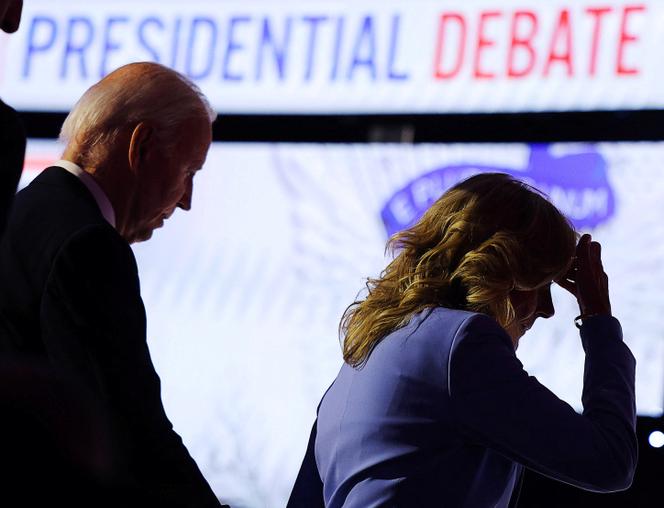
It was a completely different man. A reinvigorated doppelgänger. It was impossible not to be stunned watching Joe Biden, on Friday, June 28, speaking in front of overexcited activists in Raleigh, North Carolina. “I know I’m not a young man, that’s a given…” Clamors interrupted him. “I don’t walk as easily as I used to. I don’t speak as smoothly as I used to. I don’t debate as well as I used to. But I know what I do know: I know how to tell the truth. I know right from wrong. And I know how to do this job.”
These words were spoken in a voice that was finally clear and firm, but that emerged 16 hours too late. These words were absent at the most decisive moment, the day before, during the oppressive televised debate against Donald Trump. On Friday, Biden didn’t need to strain his memory, focus on his rival’s lies, or develop a lead argument. He read from a teleprompter, enlivened by the warmth of the audience. As he stepped down from the podium, the president was accompanied by a Tom Petty song, “I Won’t Back Down.”
The speech was a success, but its impact remained very limited, given that almost 50 million Americans had watched the debate the day before. It was intended to quell the devastating doubts that have been spreading among pundits and within the Democratic apparatus since Thursday evening, doubts about Biden’s physical and cognitive ability to be their candidate. The response was uncoordinated. Party executives remained silent in public, themselves hanging on Biden’s decision. As for advisers, they insisted that independent voters, who play a decisive role, would be very offended by Trump’s performance and his repeated lies.
Fear of the abyss
On Friday afternoon, Barack Obama went on X to defend his former vice-president. “Bad debate nights happen. Trust me, I know. But this election is still a choice between someone who has fought for ordinary folks his entire life and someone who only cares about himself.” The hypothesis of the exceptional “bad night” seems out of place and even shocking after the train wreck the president showcased on Thursday. Above all, it was proof of the fear of the abyss beneath the Democrats’ feet, in the event of Biden’s resignation: What alternative can be found in such a short space of time, what about donors, how can party unity be preserved before the Chicago convention in August? These questions are complex, but the solutions are there. The status quo, on the other hand, represents a monumental gamble, a way of playing the country’s future in a game of roulette, stemming from a mixture of denial and vanity.
You have 65.72% of this article left to read. The rest is for subscribers only.